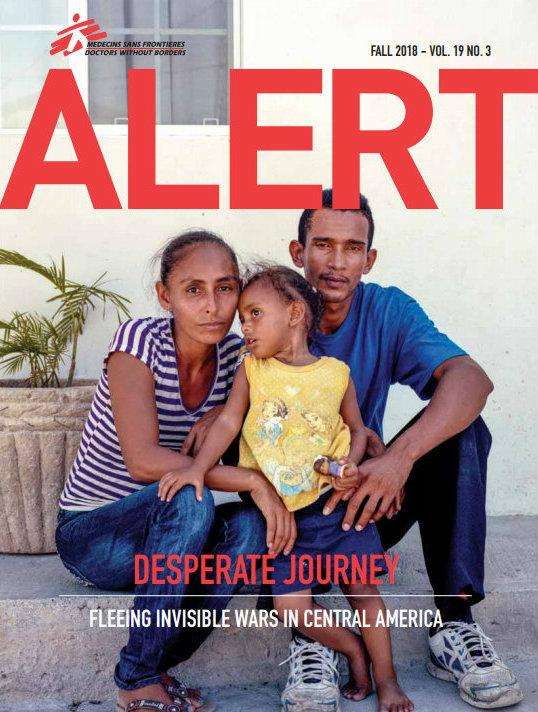This article is part of the Fall 2018 issue of Alert that highlights the urgent medical aid our teams provide to people on the move through Central America and Mexico.
Introduction
“No mas muertes” reads the graffiti scrawled in green spray-paint on the concrete median of Suyapa boulevard in downtown Tegucigalpa, the capital of Honduras. “No more deaths.” This desperate demand is echoed across the city and throughout Honduras, Guatemala, and El Salvador—the Northern Triangle of Central America—where in recent years pervasive violence and poverty have triggered a cross-border humanitarian crisis.
The three nations of the Northern Triangle have long been burdened by deep social inequality, political instability, and conflict—and in some cases have been further destabilized by US interventions in the region over the past 40 years. Now these countries are also contending with the rapid expansion of transnational organized crime, which has exploded over the past decade. Across El Salvador, Guatemala, and Honduras, drug and human trafficking by criminal groups known as maras, coupled with widespread corruption and weak law enforcement, have resulted in an environment where civilians face the ever-present threat of violence.
Some 500,000 people flee the countries of the Northern Triangle annually, displaced by threats, extortion, forced gang recruitment, and homicide rates that rival those in countries at war. Many have no choice but to undertake a hazardous journey north, risking serious injuries and even death along the way, with hopes of reaching safety in the United States. They continue to do so despite the Trump administration’s efforts to step up deportations and dismantle legal protections for refugees and asylum seekers in the US.
The physical and mental health consequences of this unfolding disaster have gone largely unnoticed by the international community. In response, Doctors Without Borders/Médecins Sans Frontières (MSF), long active in the region, is scaling up activities to provide medical and psychosocial care, running projects at hospitals and clinics and in migrant shelters along the routes north. Teams are also working to adapt the services on offer to better serve growing numbers of people on the move.




